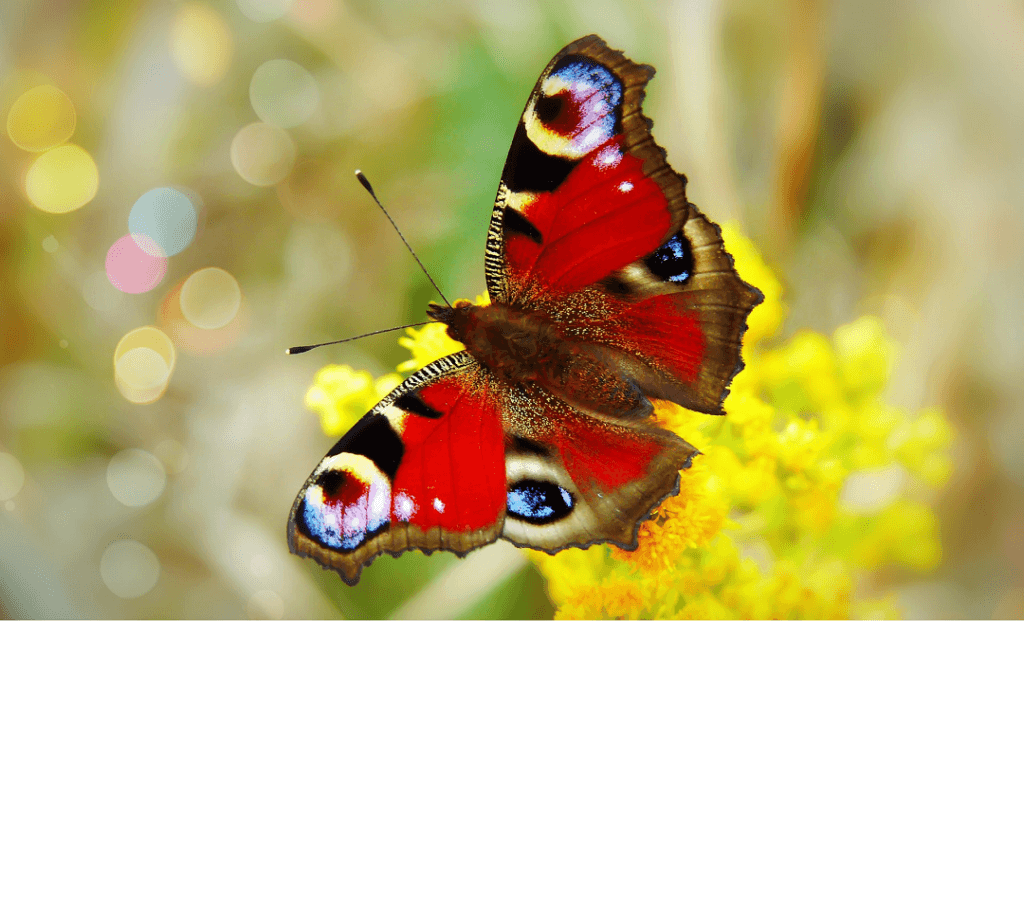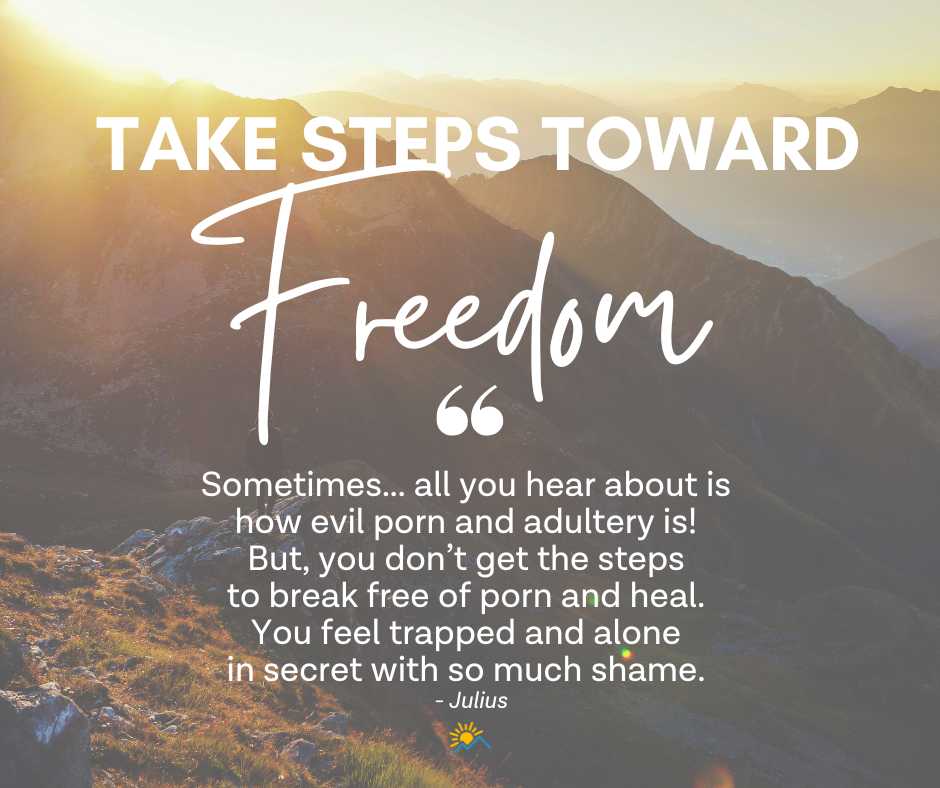Not surprisingly, neuroscience and psychologists have uncovered links to personal trauma and porn use, especially for those struggling with compulsive sexual behaviors.
Any sort of past traumatic event such as divorce, childhood trauma, or abuse can keep you stuck in the porn and shame spiral, feeling frustrated and alone. You often trust no one, especially not yourself.
But if others can break free, you can too. Understanding your body and your story better is a step toward freedom from the bondage of trauma and porn.
How past trauma and porn use are linked
Identify roots of trauma in your story.
For many, trauma started in childhood with what is called Adverse Childhood Experiences (ACEs).
While none of us have a perfect childhood, traumatic events in the formative years of our lives matter.
The Journal of the American Medical Association gives this definition of Adverse Childhood Experiences:
“Adverse childhood experiences, commonly referred to as ACEs, are potentially traumatic events that occur in childhood and adolescence, such as experiencing physical, emotional, or sexual abuse; witnessing violence in the home; having a family member attempt or die by suicide; and growing up in a household with substance use, mental health problems, or instability due to parental separation, divorce, or incarceration.”
In fact, adverse childhood experiences (ACEs) have been linked with five of the ten leading causes of death. In what ways do ACEs affect everyday life?
Many addictive behaviors result from ACEs – childhood trauma roots.
Dr. Gabor Maté, an addiction specialist who worked with hard-core drug users for a dozen years says,
“All addictions — alcohol or drugs, sex addiction or internet addiction, gambling or shopping — are attempts to regulate our internal emotional states because we’re not comfortable, and the discomfort originates in childhood.
For me, there’s no distinction except in degree between one addiction and another, same brain circuits, same emotional dynamics, same pain and same behaviors of furtiveness, denial and lying.”
Neuroscience connects compulsive sexual behavior with trauma and porn use.
Dr. Michael Barta, CSAT-S, CCPS, creator of the Trauma Induced Sexual Addiction (TINSA) model says:
“I was suffering from compulsive sexual behaviors myself…the longer I was working on myself, I started seeing how my expertise as a psychologist might be able to benefit others.”
His research and current practice focuses on helping those stuck in addictive cycles by identifying autonomic nervous system dysfunctions.
He cites studies showing that trauma affects brain formation in the early years, putting the nervous system out of “tune”, so to speak.
Often the social engagement portion of the polyvagal nervous system is affected, leaving trauma survivors continually feeling disconnected, unworthy, and unsafe. Typical thought patterns include:
Something’s wrong with me.
I’m bad.
I’m broken.
I don’t fit in.
I don’t belong.
As a result some people turn to sex, drugs, and alcohol to compensate and connect with a false sense of safety and worth.
Learning co-regulate our emotions and nervous system in a healthy way is vital for healing, notes Dr. Barta. Without healthy connections and healing from trauma, negative thoughts and behaviors can spiral out of control.
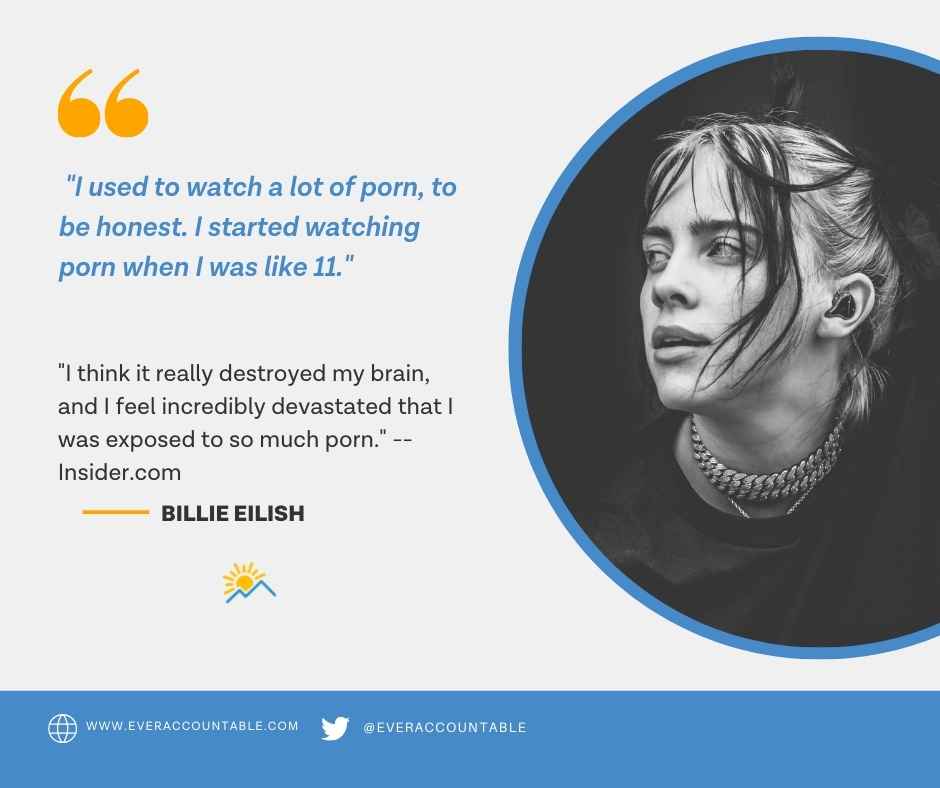
What’s worse, porn use may fuel a vicious cycle of more trauma and porn – normalizing perpetrating or acceptance of sexual violence.
Here’s how Fight The New Drug calls out porn’s secret menace:
“There is clear evidence that porn makes many consumers more likely to support violence against women, to believe that women secretly enjoy being raped, and to actually be sexually aggressive in real life. The aggression may take many forms including verbally harassing or pressuring someone for sex, emotionally manipulating them, threatening to end the relationship unless they grant favors, deceiving them or lying to them about sex, or even physically assaulting them.”
John Foubert, Ph.D. says in his video on The Truth About Porn,
“Porn IS a recipe for rape… The part of the brain that lights up when men view porn … is the part that views objects, not people… We have OVER 50 studies showing a direct link between porn and sexual violence.”
We know you’re here still reading this because you want to stop the cycle.
Maybe you’ve experienced sexual violence.
Or you’re embarrassed because you’ve found yourself acting out sexually in a way you hated. You need to acknowledge the trauma that threw you under the bus and made you a target for porn. Now – what are some ways you can heal?
5 steps toward healing from trauma and porn
1.) An early step towards healing is talking about your trauma.
Acknowledge your trauma – even the trauma of exposure to violent porn as a child.
If you’ve experienced ACEs or other traumas, talking about it is important. Just admitting out loud to another safe person that your childhood was less than perfect might be a starting point for you. Do you have a safe person who will listen to you?
Sometimes we’re taught by our early mentors to be TOUGH and to just buck up — a John Wayne mentality. While grit and resilience are important, your pain and difficult experiences should not be bottled up and ignored.
What you have gone through is important. Here’s where powerful examples from history lead the way. They triumphed over trauma and shared their stories to help others.
Frederick Douglass, a former slave and wildly successful public speaker and abolitionist, was a trauma survivor.
He documents the violent abuses he experienced in his autobiography, The Life and Narrative of Frederick Douglass.
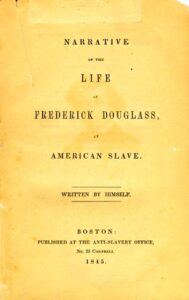 (photo credit: https://commons.wikimedia.org/wiki/File:LifeOfFrederickDouglassCover.jpg)
(photo credit: https://commons.wikimedia.org/wiki/File:LifeOfFrederickDouglassCover.jpg)
You can almost hear his groans as he describes brutal beatings he endured by former slave owners. Many years and many great struggles later, Douglass escaped. Loving hands along the Underground Railroad helped him in his flight to freedom.
By sharing his story, Douglass offers hope and healing to a whole host of other beautiful humans who have suffered similar abuses. Douglass, the unschooled former slave, became a powerful voice for human rights and freedom.
Corrie Ten Boom, another trauma survivor, lived through the horrors of WWII Nazi concentration camp Ravensbruck.
Corrie talks about her painful experiences at the hands of the Nazis in her book,The Hiding Place. However, she not only wrote of the brutal abuses she witnessed and personally endured, she also shares her experience of finding great inner freedom and hope in forgiveness.
Real freedom came when she forgave one of her abusers — a formerly cruel Nazi guard she crossed paths with after World War II. She learned to trust again as she healed from the trauma. By sharing her experiences publicly, she helped spread a message of hope and healing.
2.) Writing out your story may also help YOU deal with the “trust factor” and overcome trauma.
Today counselors often suggest writing letters to your abusers listing all of the ways they have hurt you. See step 8 in this Psychology Today article — only one of many examples.
Another caveat. Don’t worry! You don’t need to deliver this letter or share your story if you don’t feel safe.
In fact, if you have toxic past relationships, please protect yourself from emotional abuse first and foremost. Sharing your hurts with your abuser or even publicly may not be safe or wise.
But, when you list and acknowledge your hurts, this serves as a personal release mechanism. Step by step you are able to leave trauma’s influences behind and step into the light. You’ll become more than a trauma survivor! You’ll find a new identity while healing from your past.
3.) Choose to trust by choosing a safe community.
What if you were to make a list of all of the trustworthy people in your life?
Instead of medicating your trauma with porn, find a community of people who care about you. For example, joining a porn recovery support group helps you find understanding people with whom you can safely share the truth about your porn use.
Your own personal Underground Railroad to freedom is waiting for you. (Our customers rave about how effective accountability is — ALL. THE. TIME.)
- Beside each name list the reasons you trust them.
- Include traits and actual incidents that built that trust with you.
Hopefully you have more than one trusted person.
But even if you just have one, it’s important to ask your safe person, “Do you have the capacity to listen to something I’m struggling with right now?”
If not, find a mutually convenient time and space. Sharing your struggles with an accountability partner is the start to healing from the bondage of trauma and porn.
No perfect person exists, but trustworthy humans do still roam the earth. Go ahead — choose an accountability partner!
We’re here for you. We want to help you succeed. The benefits of accountability far outweigh the risks!
4.) Helpful guidelines to choosing a personal accountability partner.
Sam and Frodo from The Lord of the Rings give us a vivid example of good accountability and friendship.
More than once, Frodo tries to ditch faithful Sam on his painful journey to Mordor to destroy the evil ring in the fires of Mount Doom. In one gripping scene, Frodo discovers Sam is following him. Sam steals the scene with his faithful, kind, reliable friendship:
“Go back, Sam. I’m going to Mordor alone,” says Frodo. “Of course you are. And I’m coming with you,” retorts Sam.
- Choose someone faithful and reliable.
- Choose someone kind.
- Choose someone who WILL hold you accountable.
Your mission to quit porn is possible with a Sam in your life. When you choose to be accountable, you’re well on your way to amazing freedom from porn. You won’t want to let your Sam down!
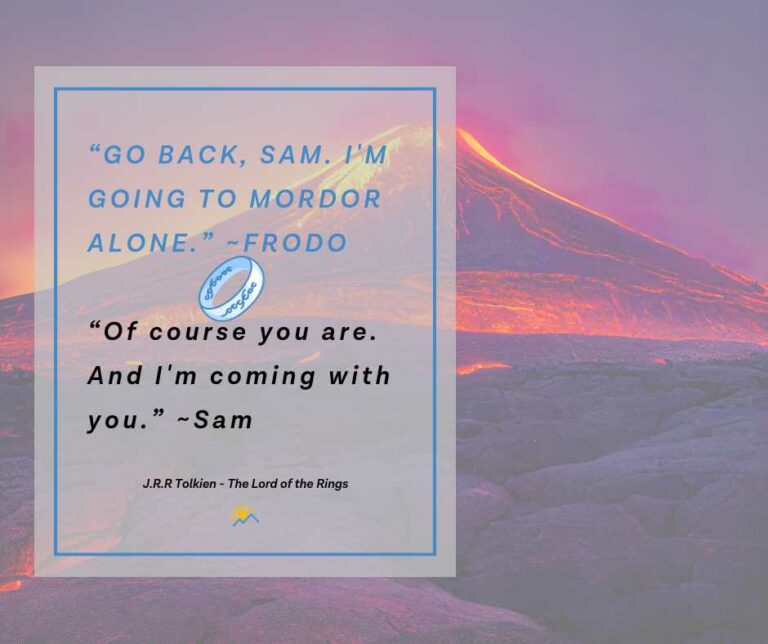
5. Overcome the “trust factor” with professional help
Professional therapy is a necessary step toward physical, mental, and emotional freedom for many abuse and trauma survivors.
You have options. First, ask your primary care physician to prescribe therapy. Often they will know if you’re covered by insurance.
Next, choose your therapist pro-actively and wisely.
Trauma-informed therapy is important, as explained in Psychology Today:
“Trauma-Informed Care is not about specific therapeutic techniques—it is an overall approach, a philosophy of providing care.”
A therapist who uses trauma-informed care (TIC) has specialized training. Recognition of your ACEs and PTSD due to trauma helps a therapist approach and treat you as a whole person.
Check out this link to find a trauma-informed therapist in your area.
Finally, anticipate paying it forward.
Freedom from porn will taste even sweeter when you also reach out a helping hand to others on their journey.
Down the road, you could be the perfect accountability partner to another courageous person who wants to quit porn. You’re way more than a trauma survivor. You’re a conqueror!
Ready to quit porn? Get accountable today! For help setting up your accountability partner on our accountability app, click here.
Sources:
Jones CM, Merrick MT, Houry DE. Identifying and Preventing Adverse Childhood Experiences: Implications for Clinical Practice. JAMA. 2020;323(1):25–26. doi:10.1001/jama.2019.18499
Waxenbaum JA, Reddy V, Varacallo M. Anatomy, Autonomic Nervous System. [Updated 2023 Jul 24]. In: StatPearls [Internet]. Treasure Island (FL): StatPearls Publishing; 2023 Jan-. Available from: https://www.ncbi.nlm.nih.gov/books/NBK539845/
Polyvagal Theory: A Science of Safety, by Stephen W. Porges
Adverse Childhood Experiences (ACEs) | VitalSigns
https://truthaboutporn.org/study/predicting-emotional-abuse-among-a-sample-of-college-students/
Addiction Rooted In Childhood Trauma, Says Prominent Specialist
